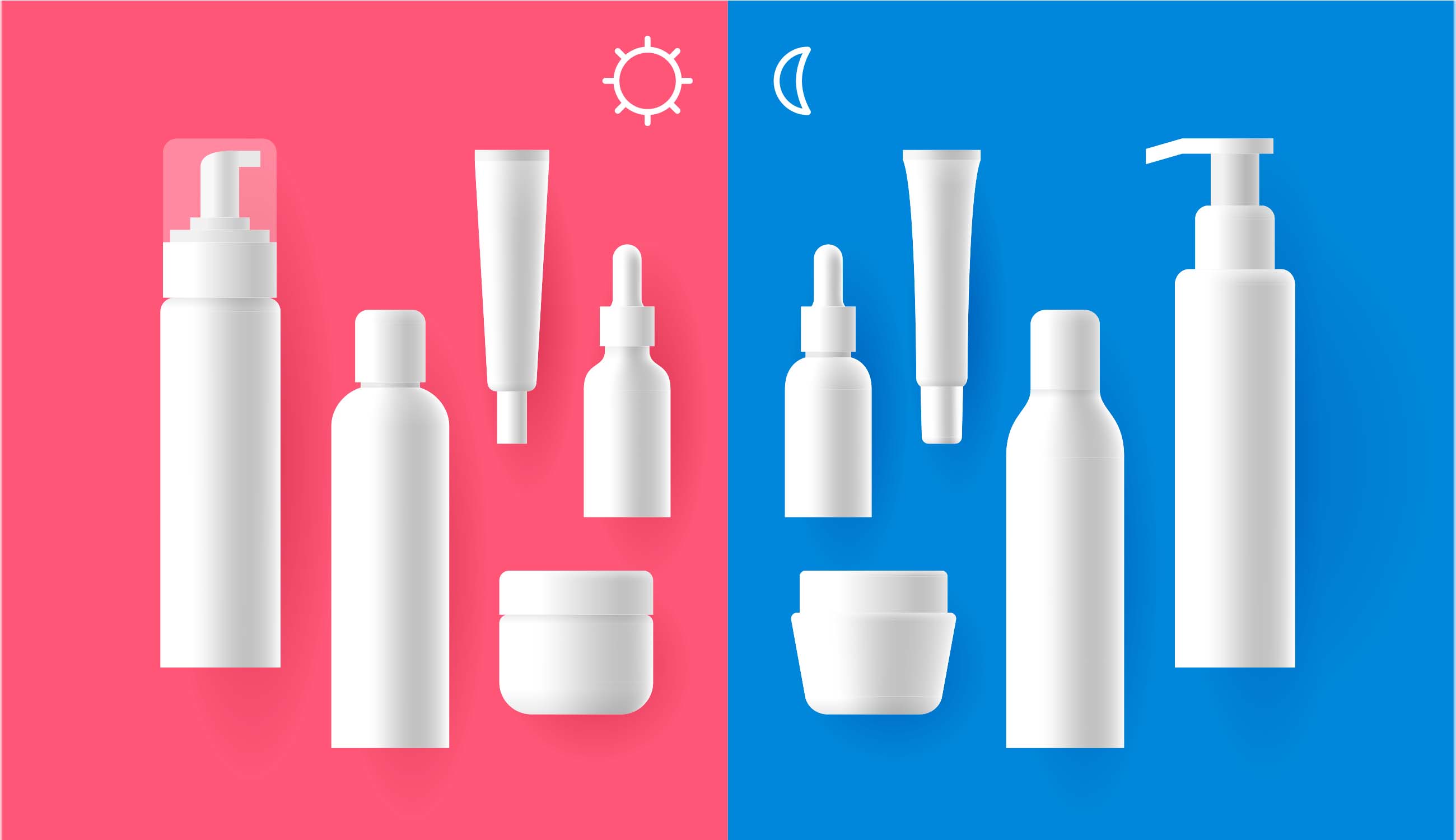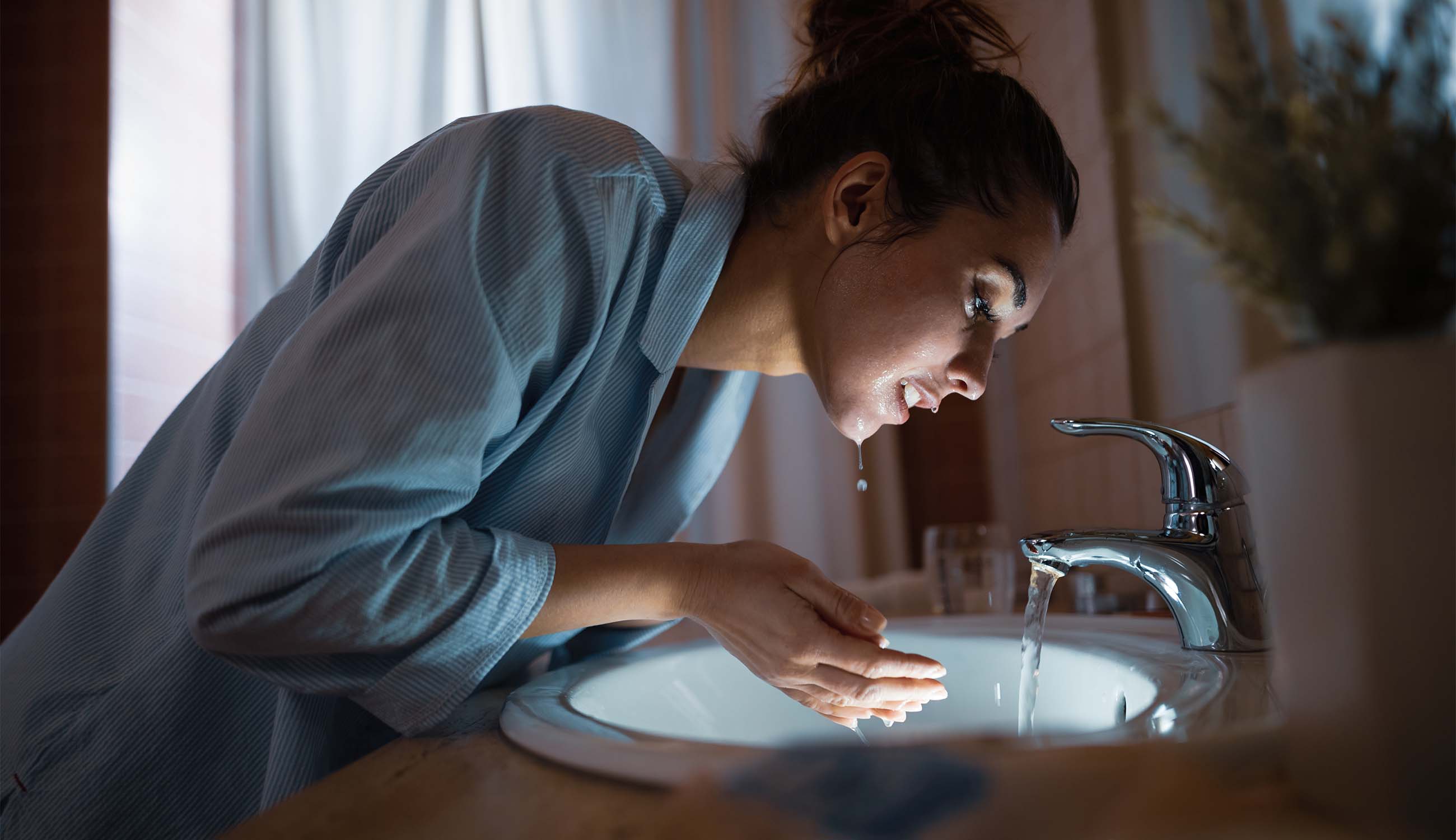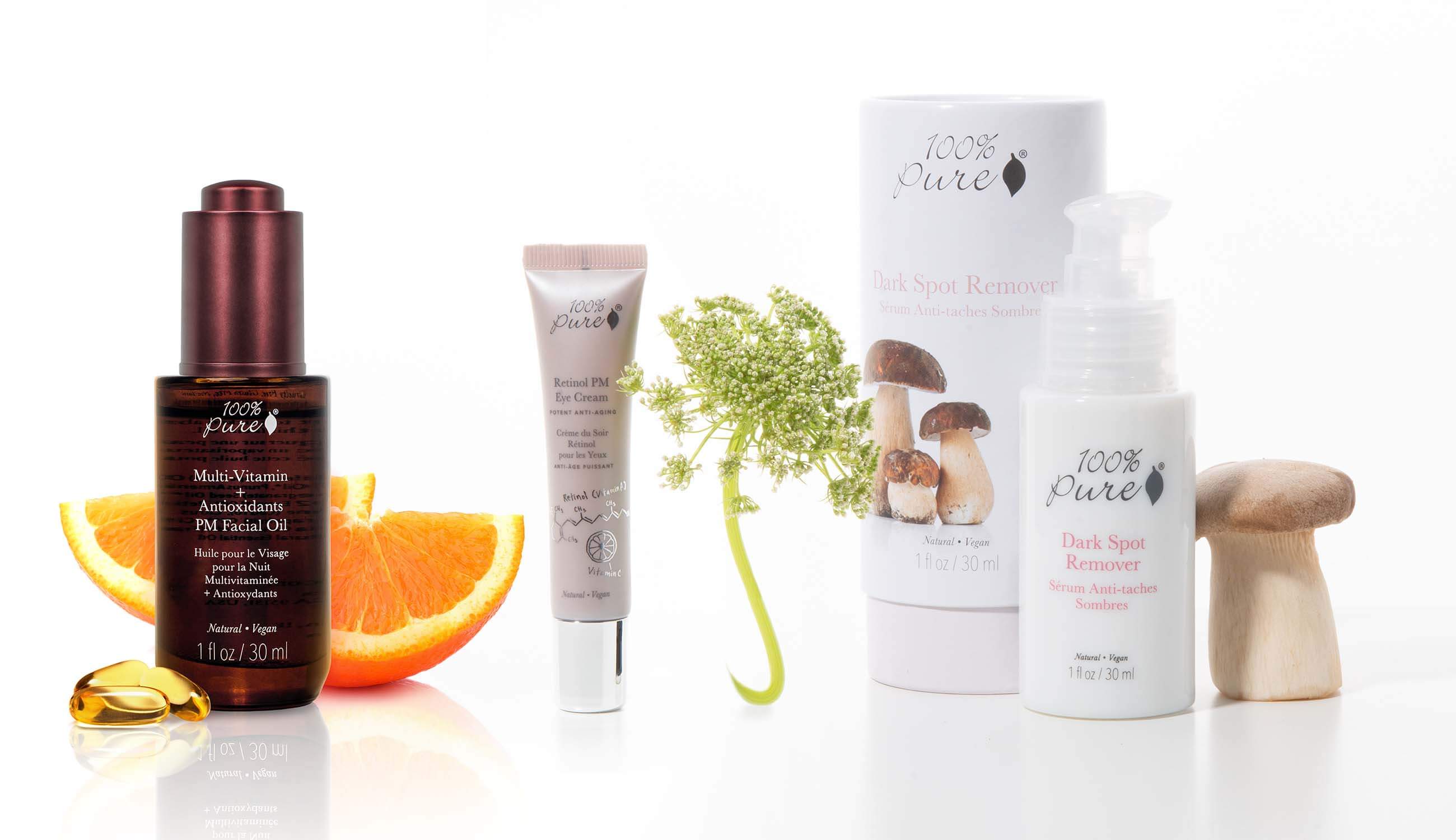
There’s a kernel of truth to this whole “beauty sleep” thing. Properly caring for your skin at night is mega-important for keeping it clear, healthy, and glowing.
Since your skin care needs are different in the daytime, it’s paramount to have a separate night routine of skin renewal and repair while your body is in regenerative mode. Read on to learn the best tips for creating a night skin care routine that can help ensure you wake up every morning with gorgeous skin.
Why a Night Skin Care Routine Is Worth Your Time
Tending to a night skin care routine right before going to bed might feel like the last thing you want to do after a busy day. But if you fall asleep at night without washing off your makeup or giving your skin proper nourishment, you will likely wake up with skin that looks dull, lackluster, or worse, broken out.
Since your skin is exposed daily to pollutants, UV rays, and any cosmetics you use, it’s important to have a nighttime skin routine that can do the job of repair and renewal. At night, your skin gets the chance to undo the damage, rejuvenate, and create new cells.
And while your skin is bare, a night skin care routine is important because all the goodness in your night products can better penetrate your skin than they can during the day. Then you can reap all the skin benefits.
How Does a Night Skin Care Routine Differ from a Daytime One?
Your daytime skin care routine is all about proper balance, hydration, preservation, and most importantly, protection from environmental pollutants. The burden of these daytime influencers can create free radicals in your skin. That can lead to aging issues, like fine lines and wrinkles and pesky dark spots.
But before you hit the pillow, your night skin care routine should be all about treatment and giving your skin back what it needs. Your skin goes into reparative mode and addresses skin issues before the regenerative process of sleep begins. It’s important to use products that are active and penetrating so they can repair skin from deep within the skin’s layers.
10 Best Practices for Your Night Skin Care Routine
While there isn’t a one-size-fits-all routine, there is a basic night skin care routine that everyone should have in place. Plus, applying products with concentrated, active ingredients and finishing by sealing in moisture are the keys to skin’s success.
#1: Wash your face and neck
Sleeping in your makeup is a cardinal skin care sin. Although it may seem like common sense, it’s crucial to wash your daily skin products and impurities off your face and neck before applying treatments. If you don’t start with a cleansed bare canvas, your night products will not work to their best potential.
#2: Use a toner
A natural toner comes next to clear leftover debris (including loosened dirt, oils, and dead skin cells) from cleansing (or exfoliating). It deeply hydrates and balances skin pH levels, resulting in a soothed, refreshed complexion.
#3: Apply a serum
Morning is a great time to use a serum with antioxidants and vitamin C, like a brightening serum. That’s because they protect your skin from free radicals you’ll encounter throughout the day. But at night, you’ll want to use a multi-vitamin restorative serum that can deeply penetrate your skin while you sleep.
#4: Use an eye cream
Apply a night eye cream that is meant for your under-eye area. Face moisturizers just don’t cut it for what our eyes actually need. Using an anti-aging eye cream with retinol is a must-have for helping to smooth out fine lines and crow’s feet around the eyes so you wake up bright-eyed and bushy-tailed.
#5: Apply a spot treatment
It’s a good idea to use spot treatments at night when your body is in repair mode. For the best blemish- and dark-spot banishing results, you’ll want a dark spot remover with antibacterial and anti-inflammatory actives, plus brightening powers to naturally lighten dark spots.
#6: Moisturize
Using a moisturizer both hydrates skin and locks in all the other layers of nightly products you’ve applied. In the evening, you can use a thicker night cream than you’d use during the day. Opt for a free radical-scavenging moisturizer with nourishing antioxidants.
#7: Use a retinol overnight balm
By applying a retinol overnight balm that gets to set for hours, you’re giving the potent nutrients a chance to deeply penetrate and fully absorb into the skin. Retinol can improve the appearance of firmness, tone, and elasticity while you sleep.
#8: Apply a retinol neck cream
Our necks often get less TLC than our faces and can quickly show the signs of aging without having proper neck treatment and protection. Keep that ‘turkey neck’ away with a retinol neck cream that can reduce telltale signs of aging in one of the most delicate and visible areas of the skin.
#9: Tie up your hair
While you snooze, your face is vulnerable to many menacing factors like a dirty pillowcase and unwashed hair. Tie your hair up in a loose bun on the top of your head so you’re never sleeping directly on top of your hair and exposing your skin to pore-clogging culprits.
#10: Patch test before using retinol
Since you’re using stronger ingredients like retinol or exfoliating acids, it’s best to patch-test before applying these products to your face. Skin can be easily irritated by certain ingredients, making patch tests a necessity.
Just as washing your face and applying sunscreen before stepping out are imperative for healthy skin, undoing the damage caused to your skin during the day is absolutely necessary. If you want to wake up with clear, glowing skin, build and maintain a night skin care routine. This way, you’ll cleanse, renew, and repair your skin while you get your necessary beauty sleep!
Frequently Asked Questions About A Night Skin Care Routine
How does sleep benefit your skin’s health and appearance?
Sleep is vital for your skin’s health and appearance because it allows your body to repair and regenerate skin cells. During sleep, blood flow to the skin increases, collagen production is boosted, and damage from UV exposure and other environmental factors is repaired. This results in a brighter, more even complexion, reduced inflammation, and a decrease in the appearance of wrinkles and fine lines.
Why is it crucial to cleanse your face before bed?
Cleansing your face before bed is crucial because it removes dirt, oil, makeup, and pollutants that accumulate on your skin throughout the day. These impurities can clog pores, leading to breakouts and dullness. Additionally, cleansing ensures that your skin care products, such as serums and moisturizers, can penetrate more effectively and work their magic while you sleep.
How can retinol improve your skin while you sleep?
Retinol, a derivative of vitamin A, is known for its anti-aging benefits. It works by stimulating cell turnover and collagen production, which helps to reduce the appearance of fine lines, wrinkles, and hyperpigmentation. Using retinol at night allows it to work without interference from sunlight, which can degrade the product and cause sensitivity. Over time, consistent use of retinol can result in smoother, firmer, and more radiant skin.
What is the best way to moisturize your skin at night?
The best way to moisturize your skin at night is to use a rich, hydrating moisturizer that suits your skin type. Look for products containing ingredients like hyaluronic acid, ceramides, and glycerin, which help to lock in moisture and repair the skin barrier. After cleansing and applying any treatment serums, gently massage the moisturizer into your skin to enhance absorption. Nighttime is the perfect opportunity to use a thicker, more nourishing formula, as your skin can fully absorb it without the interference of makeup or sunscreen.
Why should you use a specific eye cream at night?
Using a specific eye cream at night is important because the skin around the eyes is delicate and prone to showing signs of aging, such as fine lines, puffiness, and dark circles. Nighttime eye creams are typically formulated with potent ingredients like peptides, antioxidants, and retinol that target these concerns while you sleep. Applying an eye cream before bed helps to hydrate, firm, and brighten the under-eye area, contributing to a more youthful and refreshed appearance.
Source by [author_name]


